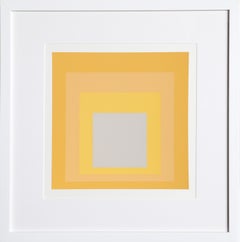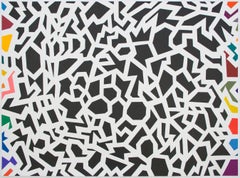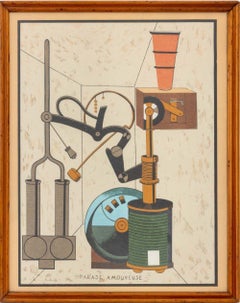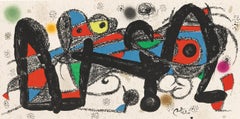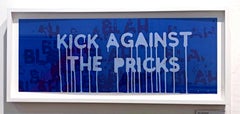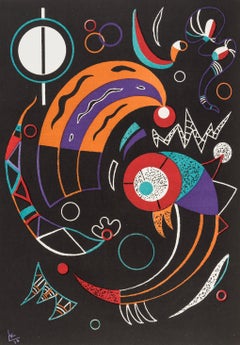New York - Abstract Prints
1970s Abstract Geometric New York - Abstract Prints
Screen
2010s Abstract New York - Abstract Prints
Linocut
20th Century Surrealist New York - Abstract Prints
Screen
1970s Surrealist New York - Abstract Prints
Lithograph
2010s Contemporary New York - Abstract Prints
Screen
1930s Modern New York - Abstract Prints
Lithograph
1950s Fauvist New York - Abstract Prints
Lithograph
1960s Modern New York - Abstract Prints
Lithograph
Late 20th Century Contemporary New York - Abstract Prints
Woodcut
1940s Post-Impressionist New York - Abstract Prints
Lithograph
2010s Abstract New York - Abstract Prints
Platinum
1980s Abstract New York - Abstract Prints
Lithograph, Offset
1980s Fauvist New York - Abstract Prints
Lithograph
1960s Modern New York - Abstract Prints
Lithograph
1970s Pop Art New York - Abstract Prints
Screen
Mid-20th Century Modern New York - Abstract Prints
Paper, Lithograph
2010s Modern New York - Abstract Prints
Screen
Early 2000s Pop Art New York - Abstract Prints
Rice Paper, Pencil, Linocut
1960s Modern New York - Abstract Prints
Lithograph
1970s Abstract Geometric New York - Abstract Prints
Screen
1970s Op Art New York - Abstract Prints
Lithograph
1970s Surrealist New York - Abstract Prints
Lithograph
1940s Modern New York - Abstract Prints
Lithograph
1970s Modern New York - Abstract Prints
Lithograph
21st Century and Contemporary Pop Art New York - Abstract Prints
Offset, Paper
1970s Surrealist New York - Abstract Prints
Lithograph
1990s Abstract Geometric New York - Abstract Prints
Permanent Marker, Lithograph, Offset
2010s Minimalist New York - Abstract Prints
Etching
2010s Contemporary New York - Abstract Prints
Screen
2010s Contemporary New York - Abstract Prints
Archival Pigment
1960s Minimalist New York - Abstract Prints
Screen
1970s Surrealist New York - Abstract Prints
Lithograph
1960s Post-Modern New York - Abstract Prints
Archival Paper, Lithograph
1960s Modern New York - Abstract Prints
Lithograph
1990s Abstract Expressionist New York - Abstract Prints
Lithograph
20th Century Abstract New York - Abstract Prints
Paper, Woodcut
20th Century New York - Abstract Prints
Screen
1930s Surrealist New York - Abstract Prints
Photogram
1960s Pop Art New York - Abstract Prints
Screen
1960s Modern New York - Abstract Prints
Lithograph
1950s Fauvist New York - Abstract Prints
Lithograph
Early 2000s Abstract New York - Abstract Prints
Watercolor, Monotype, Graphite
2010s Contemporary New York - Abstract Prints
Foil
1940s Modern New York - Abstract Prints
Lithograph
1970s Abstract Geometric New York - Abstract Prints
Paper, Etching, Aquatint
1960s Pop Art New York - Abstract Prints
Lithograph, Pencil
1980s Pop Art New York - Abstract Prints
Lithograph, Offset
1960s Modern New York - Abstract Prints
Lithograph
1970s Contemporary New York - Abstract Prints
Lithograph
1960s Surrealist New York - Abstract Prints
Lithograph
1990s Minimalist New York - Abstract Prints
Screen
Early 2000s Pop Art New York - Abstract Prints
Paper, Ink, Mixed Media, Lithograph, Offset
1950s Fauvist New York - Abstract Prints
Lithograph
1970s Abstract Expressionist New York - Abstract Prints
Lithograph
1990s Pop Art New York - Abstract Prints
Board, Lithograph, Offset
1970s Abstract Expressionist New York - Abstract Prints
Screen
1970s Surrealist New York - Abstract Prints
Lithograph
1970s Abstract Geometric New York - Abstract Prints
Screen
1930s Fauvist New York - Abstract Prints
Lithograph
Early 2000s Contemporary New York - Abstract Prints
Offset
Read More
Joan Mitchell’s Rare, Late-Career Diptych Buzzes with Life
Beneath the inky blackness, the painter’s irrepressible energy electrifies this pair of intaglio prints.
The 1stDibs Guide to Types of Abstract Art
Get to know the key movements and artists who have influenced visual culture for more than a century.
Get to Know the Artists Who Led the Op Art Movement
In the 1960s and '70s, the hypnotic creations of Op artists went mainstream and influenced the look of pop culture.
